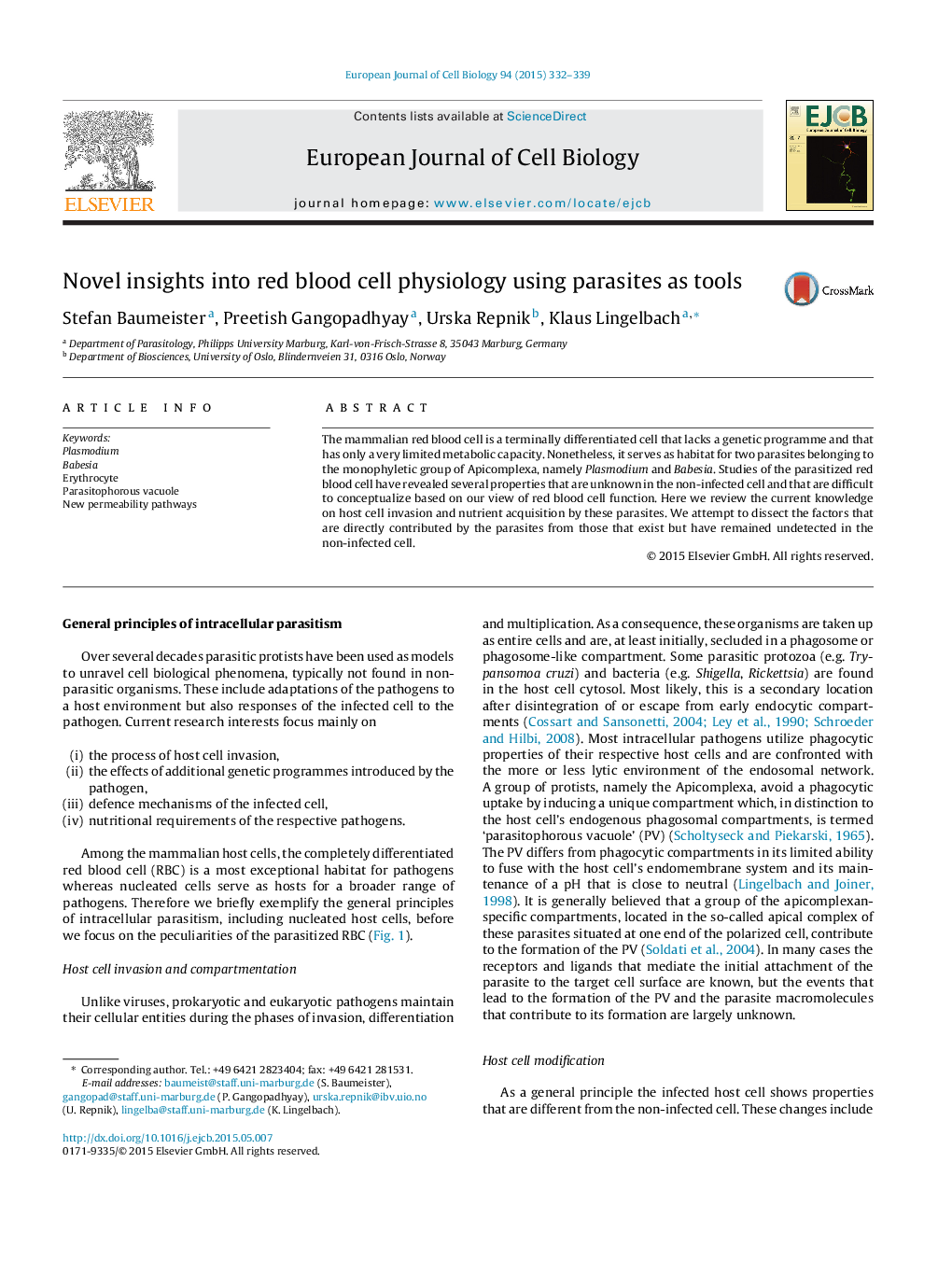| Article ID | Journal | Published Year | Pages | File Type |
|---|---|---|---|---|
| 2178358 | European Journal of Cell Biology | 2015 | 8 Pages |
Abstract
The mammalian red blood cell is a terminally differentiated cell that lacks a genetic programme and that has only a very limited metabolic capacity. Nonetheless, it serves as habitat for two parasites belonging to the monophyletic group of Apicomplexa, namely Plasmodium and Babesia. Studies of the parasitized red blood cell have revealed several properties that are unknown in the non-infected cell and that are difficult to conceptualize based on our view of red blood cell function. Here we review the current knowledge on host cell invasion and nutrient acquisition by these parasites. We attempt to dissect the factors that are directly contributed by the parasites from those that exist but have remained undetected in the non-infected cell.
Related Topics
Life Sciences
Agricultural and Biological Sciences
Plant Science
Authors
Stefan Baumeister, Preetish Gangopadhyay, Urska Repnik, Klaus Lingelbach,
